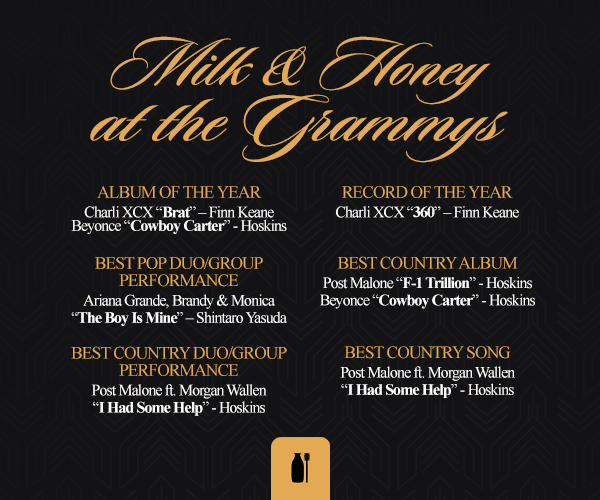
Less than five minutes. That’s all the gap there was between the arrival of a weekend bulletin from Music Business Worldwide reporting Apple Music’s exclusive with Taylor Swift’s new concert video and speculation about when the next shoe would drop.
On social media, not even five minutes after MBW’s email arrived, an industry friend asked which streaming service “will Adele sign with and what will that check look like?”
Suddenly I heard the same Sesame Street song that ran through my head during that incredible week last month when Adele sold more than 3 million copies of an album in less than seven days: “One of these things is not like the other.”
For during the week Adele shattered every known sales record known to her industry, voices seemed equally divided over whether it was appropriate for the artist to withhold most of 25’s content from streaming services. Of friends who expressed an opinion on Facebook, several seemed genuinely thrilled that she’d sidestepped streaming’s waters, some of them people who had never even worked in the music industry.
But, like those industry pundits who Tim Ingham cited in a recent MBW Review, some of my Facebook connections were downright offended by the move. “Withholding the album from Spotify just sticks it to every non-superstar recording artist,” opined one.
“Everyone knows that streaming is the future of the industry, but very few artists will benefit until it scales up. Putting this album on Spotify would’ve pulled millions of newbies onto the service, and at least a quarter of those millions would have liked it enough to pay.”
Of course, the gripes weren’t confined to social media.
John Seabrook in the New Yorker and indie musician/blogger Ari Herstand were among those who assailed 25’s holdout from streaming, while curmudgeonly observer Bob Lefsetz complained, “You’re not the Beatles.”
As a music lover, I’m a big fan of streaming, and as an interested bystander, I’m confident in the revenue it can realize for the industry, a promise already suggested by the most recent fiscal reports from Universal Music and Warner Music.
But, even as I root for this channel’s success, I was puzzled by the notion that building an audience for streaming services might be Adele’s responsibility.
Then, the more I read about Adele’s streaming lag, I was further confounded to see 25’s slow arrival at streaming compared to earlier business decisions exercised by Swift and another multi-platinum star, Beyonce.
“One of these things is not like the other.”
Swift drew attention during the summer when she openly complained about terms Apple Music had proposed to pay no royalties during new users’ free three-month trials, and she caused a stir last year when her objections to Spotify’s free tier prompted her to pull her music from that service.
Somehow, the iTunes-exclusive that Beyonce had in the opening days of her surprise self-titled 2013 album got added to the Adele conversation, because streaming services had to wait on the sidelines during that Apple-first window.
“One of these things just doesn’t belong.”
The theme being woven was that only high profile artists like Adele, Swift and Beyonce can afford to bypass streaming—a faulty assumption, in and of itself—but the bigger demise of that assumption were the differing circumstances those artists’ camps addressed.
Swift, who had always held her most recent album from all streaming services prior to her dustup with Spotify, took a specific and public stance when she erased her works from that company’s menu. She didn’t like the economics behind Spotify’s free tier and the company’s insistence that all songs offered to its paid subscribers must also be available to “freemium” users.
That action stands apart from Adele’s game plan for 25, which is not only absent from Spotify, but all of its streaming competitors. True, her 21 did make a slower migration to Spotify than it did to the other streamers, but the new album isn’t being offered yet within any on-demand streaming portals.
Further contrasting Adele’s windowed strategy from Swift’s Spotify stance: the former hasn’t really taken a stance. While Swift made her objections to Apple Music’s proposed terms and Spotify’s free tier known in open letters that were widely reported, Adele isn’t really grinding an axe.
Finally, in a new interview with Rolling Stone, a month after the album arrived, Adele slightly scolded streaming as being “a bit disposable,” but fell short of Thom Yorke-ish rants about the channel’s business model.
While she praises Swift for dictating her own terms, Adele has been less confrontational. When first given chances to elaborate on why 25 can’t be streamed in earlier interviews she did for NBC’s The Today Show and Rolling Stone, she demurred, telling the former, “It probably is the future, but, eh.” Not exactly fighting words.
“Can you tell me which thing is not like the others by the time I finish my song?”
Meanwhile, comparing the delayed streaming launch of Beyonce’s 2013 album to either Swift’s Spotify fight or Adele’s marketing decision is even more off topic.
I guess you could say that starting iTunes-first technically delayed that album from streaming accounts, but here’s a short list of the other partners who didn’t have the title during its initial days:
- Target
- Amazon
- Best Buy
- Trans World
- Amoeba
- Hastings
- Newbury Comics
- Your favorite local record shop
In Beyonce’s case, going digital first enabled the album’s surprise element. Doing it exclusively through iTunes entitled her to extra marketing drivers from the industry’s largest partner and you can bet Apple paid for the privilege one way or another.
It wasn’t a move that came without consequences. Target passes any album that starts at digital before reaching the physical market, and their stores can be more than significant for an artist like Beyonce.
So, technically, I guess you could say her album made a late start at streaming, but so it also did arrive later for any retailer—physical or digital—that wasn’t Apple’s. That’s like saying a woman was shoeless, when in fact she was nude—so much detail missing in that first description.
Just as the streaming decisions behind Swift, Adele and Beyonce are not interchangeable, Apple’s most noted exclusives reflect similar but different circumstances.
In the case of Beyonce’s 2013 album, and more recently Drake, iTunes benefitted from the exclusive sales window, while artists got juice not only from Apple’s full-court marketing, but the publicity angle of a big-name artist unveiling an unexpected release.
In what turned out to be a publicity backfire, Apple’s sudden and free offering of U2’s Songs Of Innocence to every active iTunes consumer acted as an exclamation mark for a product launch and reminded the world that music is integral to the company’s brand. In turn, being outside of metrics measured by Nielsen Music or BuzzAngle helped U2 avoid the late-in-career sniping that comes when a band’s new album doesn’t start with as big a sales week as its last one did.
Had the exact same distribution method been communicated differently—it’s available to you for free versus it’s already in your library—the U2 promotion would have played better in the post-Edward Snowden era, but the $100 million payday the band reportedly got from Apple was probably worth the kerfuffle.
There are pluses on both sides of this new Swift/Apple Music alliance. Even if you’re one of the absolute hottest artists of the 21st Century, a music video doesn’t sell on par with studio releases—especially measured against albums that start with million-selling weeks the way each of Swift’s last three have done.
Thus, the mega-popular singer avoids the second guessing to which 1989 World Tour Live would have been subjected in the age of social media, especially on the heels of Adele’s triple-platinum week.
In landing its new Taylor Swift exclusive, Apple Music adds a video dimension to what has been perceived as an audio service, while adding a potential asset to its still growing Apple TV platform. But, more than that, Swift’s white-hot appeal adds a lure to entice any of the millions of consumers who have yet to avail themselves to Apple Music’s free three-month trial, including those who have yet to try any streaming service.
If the play indeed adds new subscribers to the overall streaming universe, that’s a win not only for Apple, but for the industry at large, because the company’s diversification into this market won’t get artists, composers, labels and publishers anywhere if we simply see Apple Music and Spotify steal consumers from each other, or watch those two get larger at the expense of rival services’ customer counts.
If it’s true that the Beatles’ brain trust contemplated doing an Apple Music exclusive, than a decision to stream instead with multiple partners will prove there are factors beyond a hefty check to consider in these circumstances, not only by artists and their labels, but by their potential suitors, too.
Further complicating matters, it appears there’s been more than one instance where an artist faced a conflict between a desire to tie into Apple’s substantial marketing clout and cool factor and his or her stake in streaming competitor Tidal.
So, how long before Apple or Spotify or any other streaming partner wraps an exclusive with Adele? Hey, it might happen, but don’t hold your breath.
As the old Sesame Street ditty advises, one of these things might not be like the other.Music Business Worldwide




